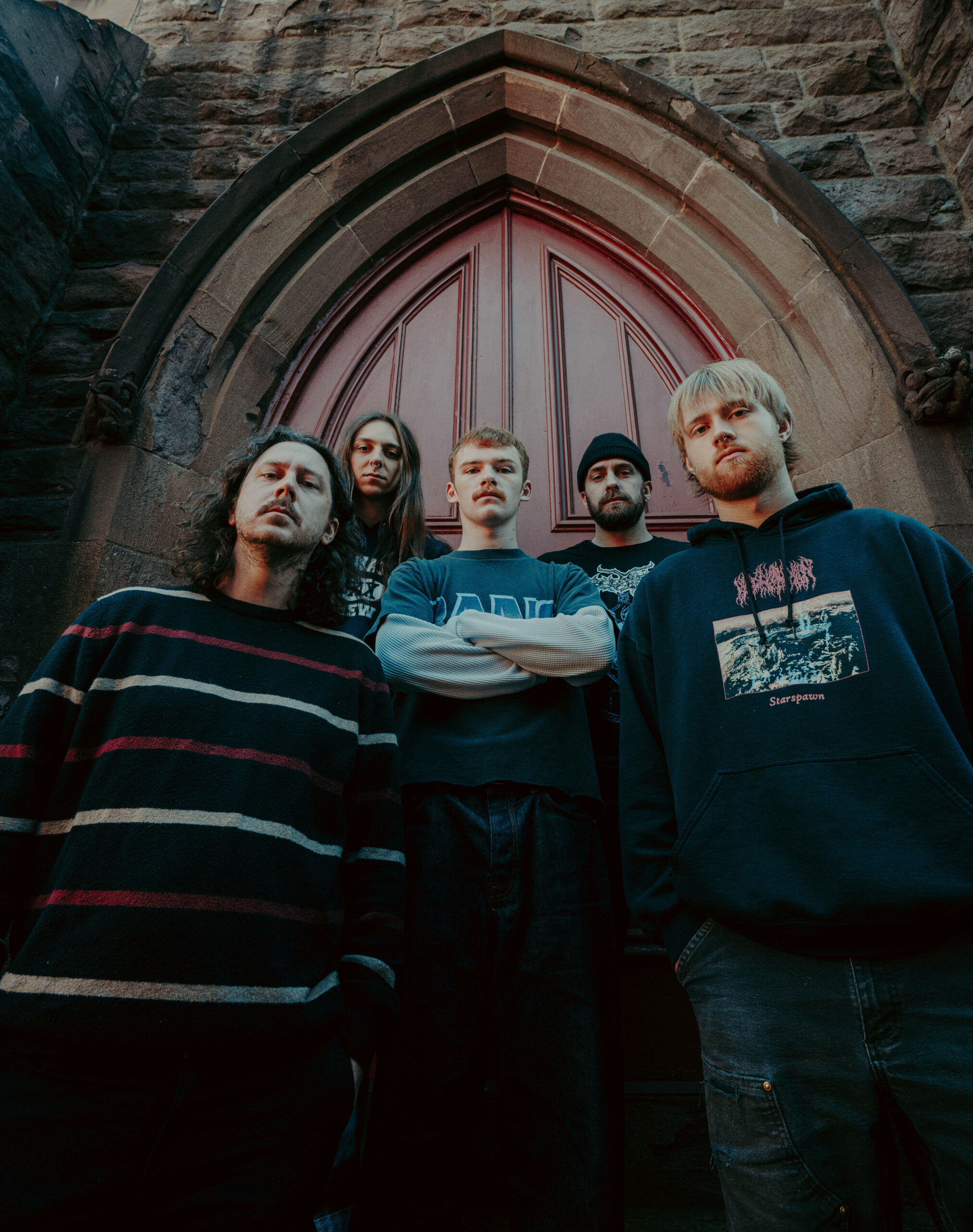
When Hands Like Houses made their debut in 2012 with Ground Dweller on Rise Records, they immediately stood out. At the time, Rise’s roster of new signings was filled to the brim with dime-a-dozen metalcore bands that did little to distinguish their stereotypically angsty and melodramatic music from the then-dominant groups of the Warped Tour scene… or from each other. With their label dominated by so much sonic homogeny, it was downright refreshing to see Rise take a chance on an Australian sextet who flipped the script, crafting a progressive sound where sonic intricacy meshed with nuanced lyrical storytelling, a combination that could reach genuinely riveting heights.
Hands Like Houses quickly took their place as one of the most promising bands Rise had to offer, and Ground Dweller’s success proved that there was still a market in the Warped scene for progressive music melded with an accessible, hooky edge. Yet with each subsequent release — as greater numbers of progressive-leaning post-hardcore bands have emerged, drawing influence from the success of HLH (as well as labelmates Dance Gavin Dance and Emarosa) — the band itself has leaned more and more into the accessible rock elements of their sound, increasingly favoring massive hooks over its early unorthodox compositions. While 2016’s Dissonants brought the band their greatest success to date, it also saw them embracing a streamlined hard rock-driven style that at times threatened to erode some of their distinctiveness.
So it is perhaps a testament to the band’s enduring talent that Anon., their fourth album and debut on Hopeless Records, is both their boldest leap into accessibility, and also a statement of renewed purpose. Here, Hands Like Houses not only prove that they can craft massive, stadium-sized anthems, but also that they can do so while putting their own unique spin on the alternative rock landscape. Across the album’s 10 tracks and 32 minutes, style and substance go hand in hand, resulting in one of the most infectious rock records released this year.
Opener “Kingdom Come” sets the mood with hand claps and an infectious main riff, as frontman Trenton Woodley sings a tale of apocalyptic anxiety that feels more relevant than ever. Yet as always, Woodley is able to sum up the song’s mood with a soaring singalong hook. These more streamlined song structures remain a consistent theme throughout the album, yet this doesn’t stop the band from pushing themselves into new ground. If Dissonants could be criticized for having too many songs that relied on traditional post-hardcore formula, Anon. does far more to make sure that each track brings its own distinctive sound, and is arguably the band’s most sonically diverse release yet.
Other standout tracks such as lead single “Overthinking” bring back a taste of the melodic deftness and instrumental flourishes that were sometimes lacking on Dissonants, while still retaining the band’s growing talent for hook-centric songwriting. “Through Glass” and “No Man’s Land” slow down the tempo considerably to make some of the band’s most straightforward and emotionally honest ballads, with the latter taking an honest look at some of the negative societal conditioning that drives men to violence and self-loathing. Closing track “Bad Dream” opens with blues rock swagger reminiscent of The Black Keys, before transitioning into a distorted hard rock jam. What it and other tracks in Anon. lack in subtlety, they frequently make up for in energy and passionate performances.
Yet perhaps the most glaring illustration of both the strengths and weaknesses of Anon. comes from the one track that deviates the most from the album’s overall mood. Where most of the album’s tracks focus on verse-chorus-verse pusha and pull, “Black” slowly simmers and builds tension. The song gradually builds upon a restrained industrial rock foundation and frequently repeating lyrics, before exploding in its final climax into the heaviest passage of music ever recorded by the band, led by visceral screams by Woodley unlike any we have heard from him before. The track’s stunning moment of catharsis makes it both a clear standout in the album and their discography overall, and a potential signpost for the band’s future. While many of the tracks on Anon. show the band show the band adapting mainstream rock tropes while incorporating some of their signature style, “Black” feels like a true reinvention, and it is consequentially the album’s most riveting listen. Going forward, if Hands Like Houses are able to push even more boldly into off-kilter experimentation, while still retaining their sizable talent for soaring hooks and emotional storytelling, their best work may yet lie ahead of them.
Score: 4/5



